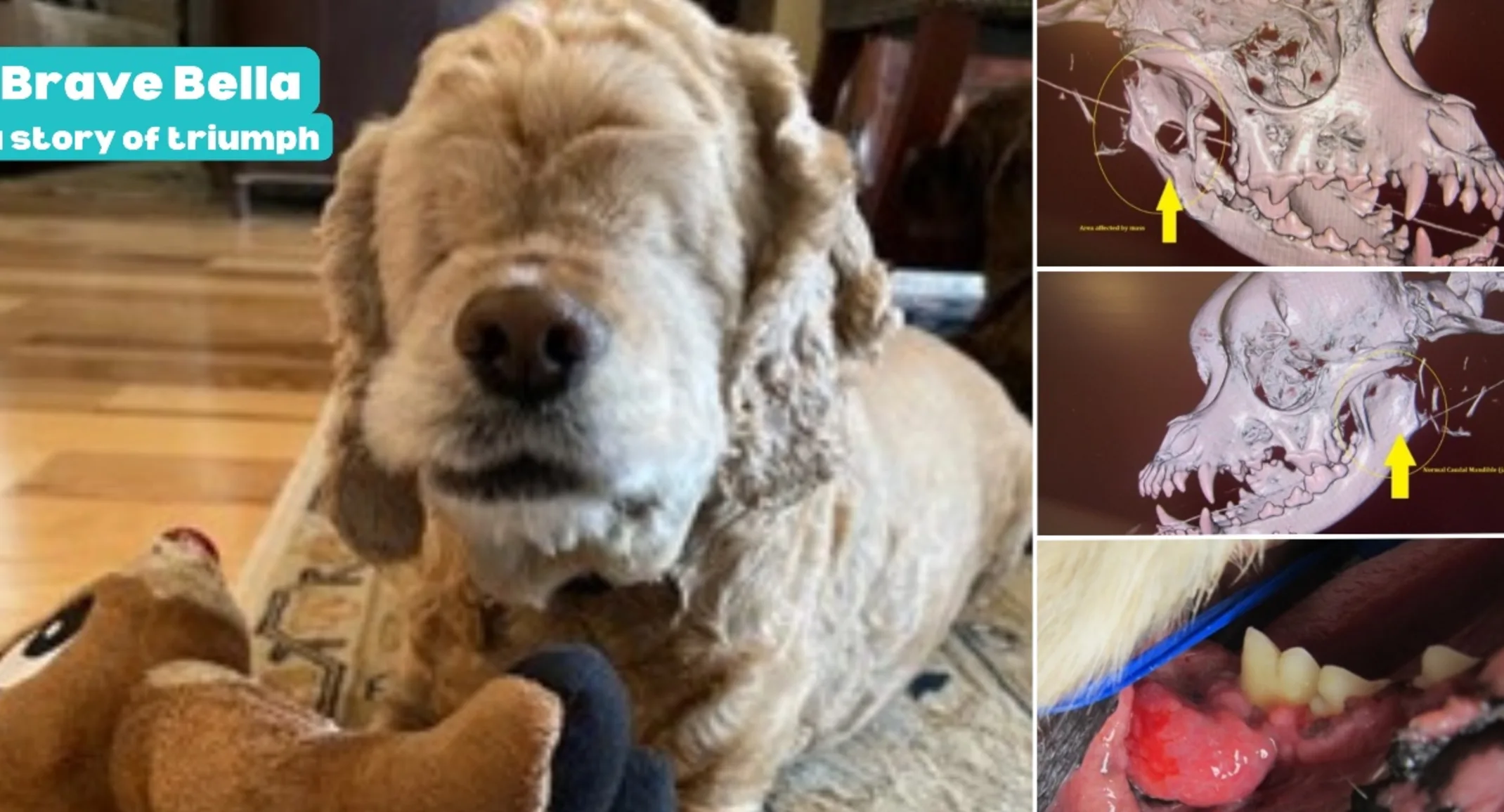Brave Bella’s Triumph Over an Invasive Tumor
General

Bella's ordeal began when her parents noticed an unusual mass in her mouth as she yawned. Concerned for her well-being, they promptly sought medical attention at ASEC, where a CT scan of her skull was conducted to gain a comprehensive understanding of the extent of the tumor and explore the possibility of surgical intervention.
The advanced CT scan and intraoral dental radiographs, provided by the Dentistry & Oral Surgery department at ASEC, offered invaluable insights into Bella's condition. By meticulously analyzing the images, Dr. Morgado and her veterinary team could assess the extent of bone loss in the back of Bella's right lower jaw, a critical factor in planning her treatment. Furthermore, the scan facilitated a side-by-side comparison of both sides of Bella's jaw, aiding in accurate diagnosis and treatment planning.
Upon thorough evaluation, the medical team made the decision to proceed with a segmental caudal mandibulectomy, a surgical procedure involving the removal of the back right lower jaw. This intricate procedure aimed to fully excise the tumor while preserving Bella's quality of life and her ability to enjoy her favorite activities.
The tumor was identified as a Canine Acanthomatous Ameloblastoma (CAA), a type of tumor known for its local invasiveness. The prognosis, however, was promising – complete surgical removal of the tumor usually leads to a full cure. Bella underwent the surgery with bravery and resilience, capturing the hearts of the medical staff who worked diligently to ensure her well-being.
Since the successful surgery, Bella's recovery has been nothing short of remarkable. Despite the absence of a portion of her lower mandible, her enthusiasm for life remains undiminished. Bella's joyful spirit shines through as she continues to play with her beloved reindeer toy.
